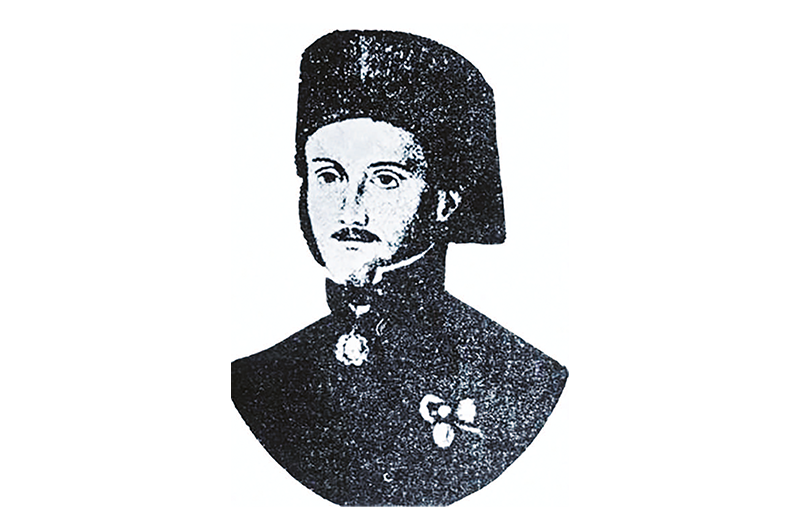He brought modern medicine to the Ottoman Empire: Who is Karl Ambros Bernard?
He is an Austrian physician who supported the Ottoman Empire's efforts to modernize medical education.

(1808-1844) Austrian physician. He pioneered the development of medical education during the Mahmud II period. He was born on February 23, 1808, in Prague, the center of Bohemia. Although he is introduced as Karl Ambros in German sources, the most reliable document on the life of Charles Ambroise Bernard, who prefers the use of his name in French in his works, is the epitaph of his tomb in Istanbul.
Charles Ambroise Bernard, who started his medical studies in Prague and completed his medical studies in Vienna, took a job as an assistant physician in an infantry regiment in Czernowitz (today Chernovtsi in the USSR, Ukraine) and then worked at the Bukovina Hospital during the cholera epidemic that loomed on the Russian border in Galicia. As a successful internal medicine physician, he was accepted to the Vienna Medical Association. In the same year, within the framework of the relations between the Austro-Hungarian Empire and the Ottoman Empire, He was invited to Istanbul to organize the newly established Mekteb-i Tıbbiye-i Adliye-i Şahane by Mahmud II. His work was rewarded by the next sultan, Abdülmecid. From the small lithograph of Bursa Thermal Springs, it is understood that he was in poor health and went to Bursa for treatment. The grave of Charles Ambroise Bernard, who died in Istanbul on November 2, 1844, is in the Santa Maria Draperis Catholic Church in Beyoğlu. The westernization movement in medicine, which started during the reign of Selim III, was continued during the reign of Mahmud II, and with the establishment of two new medical schools, Tıbhane-i Amire, and Cerrahhane, in 1827, the high school cycle began. A few years later, these two schools were merged under the name of Mekteb-ı Tıbbiye-i Adliye-i Şahane, and became the main center of medical education in line with the Western model, with the influence of both the management and the foreign teachers in the teaching staff.
Karl Ambros Bernard, who was appointed as the director of this newly established school in 1838 and the head of the internal diseases and surgeon departments, with the request of Mahmud and the suggestion of Prince Metternich's private physician, began to practice modern medicine education based on research and laboratory work here. He took an important step in the teaching of pathology and anatomy by starting the cadaver study for the first time with official permission. He also worked at the Austrian Hospital (today the Pasteur French Hospital). He also served as a palace physician and as a member of the newly established Quarantine Council at that time. In 1844, he prepared the first Ottoman medicine manual (codex) and established a laboratory and library at the medical school. He has published several supplementary books in French. He also made it compulsory for his students to learn French. The innovations that Charles Ambroise Bernard brought to medical education have a special importance among the first Westernization efforts in the Tanzimat period.
